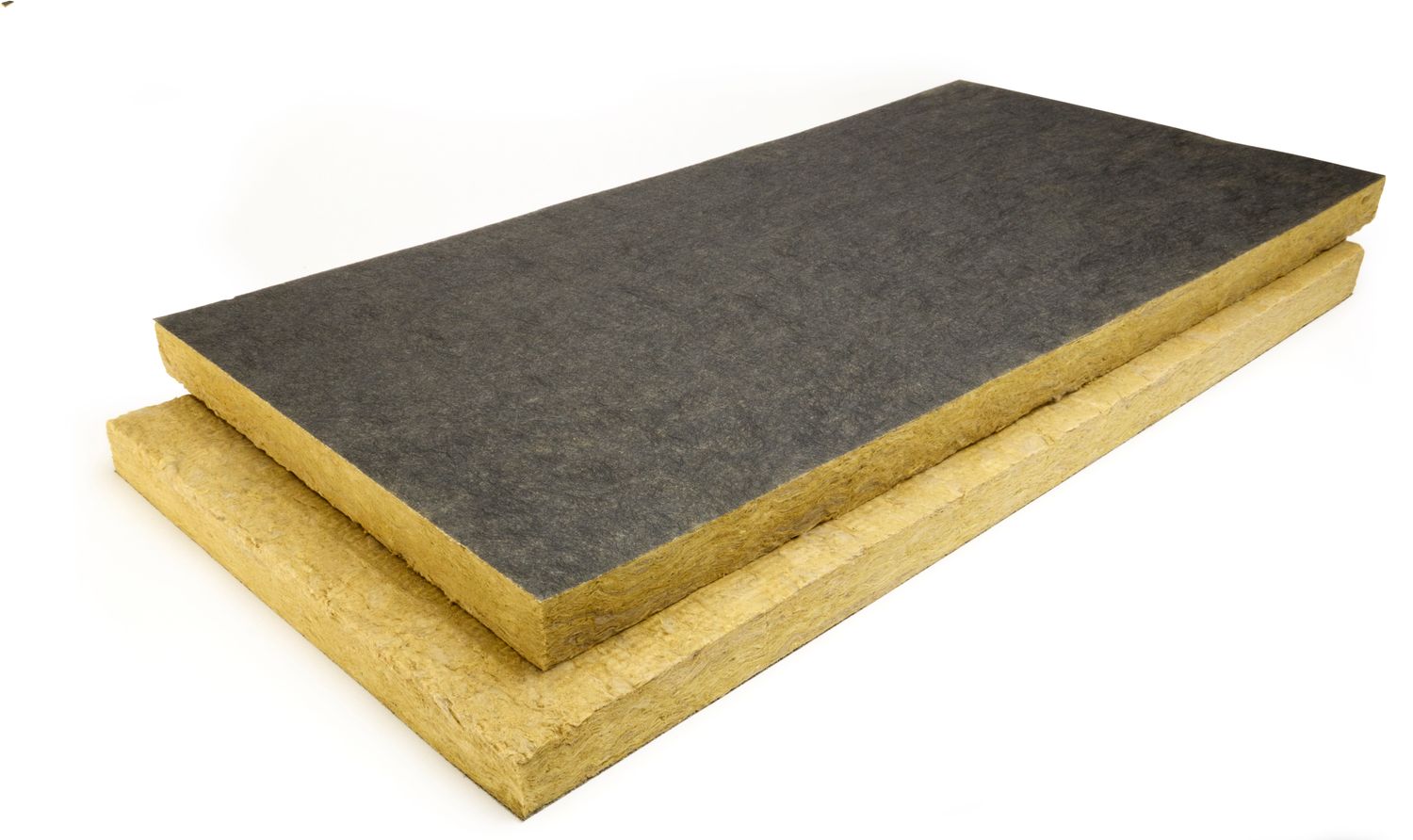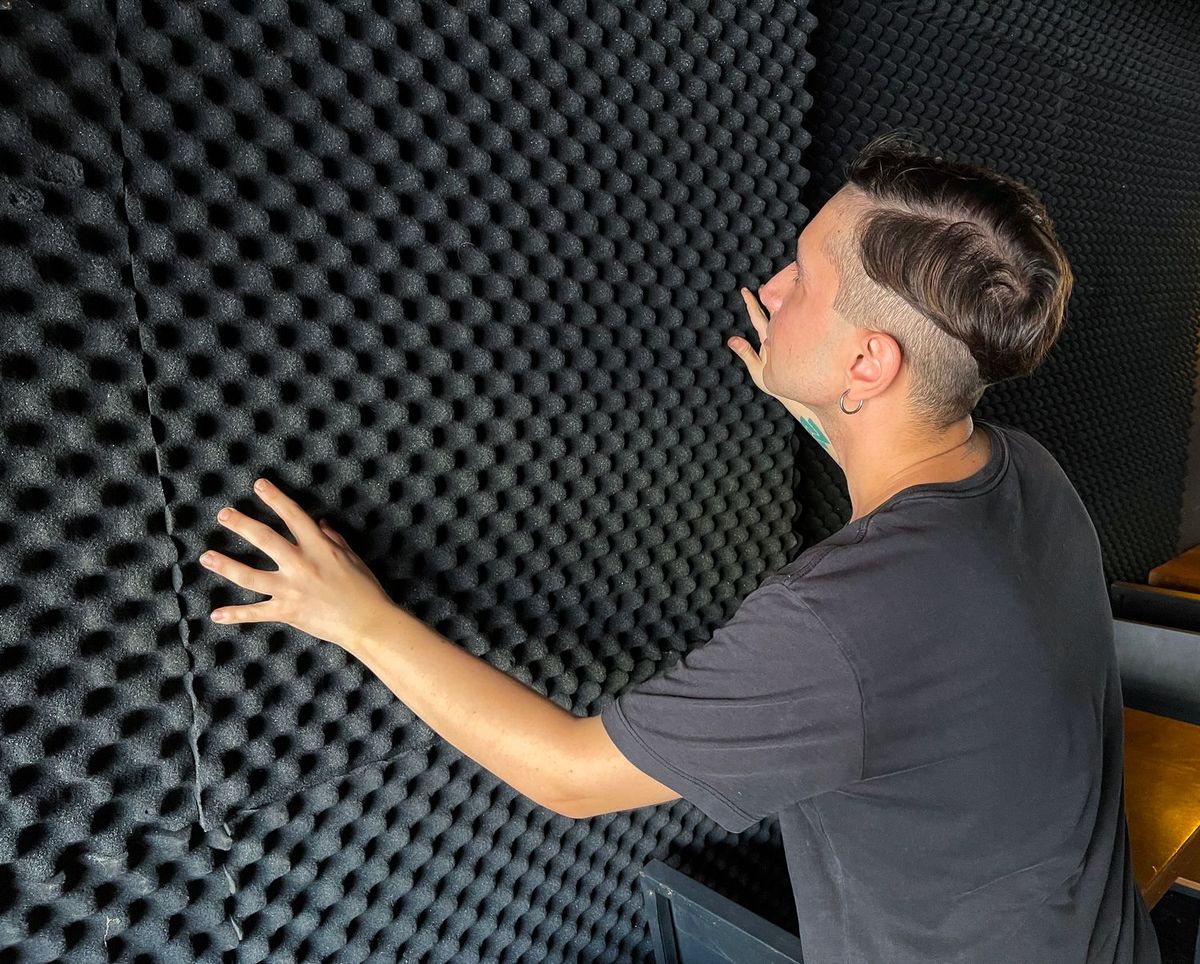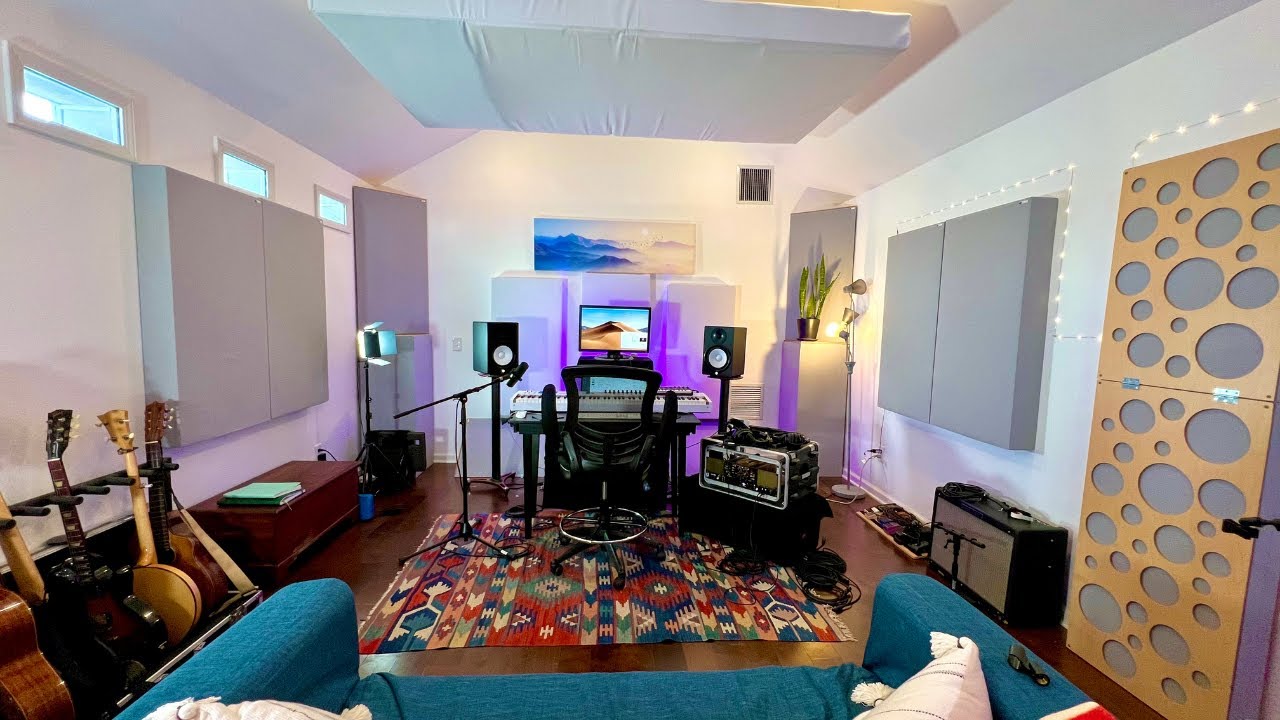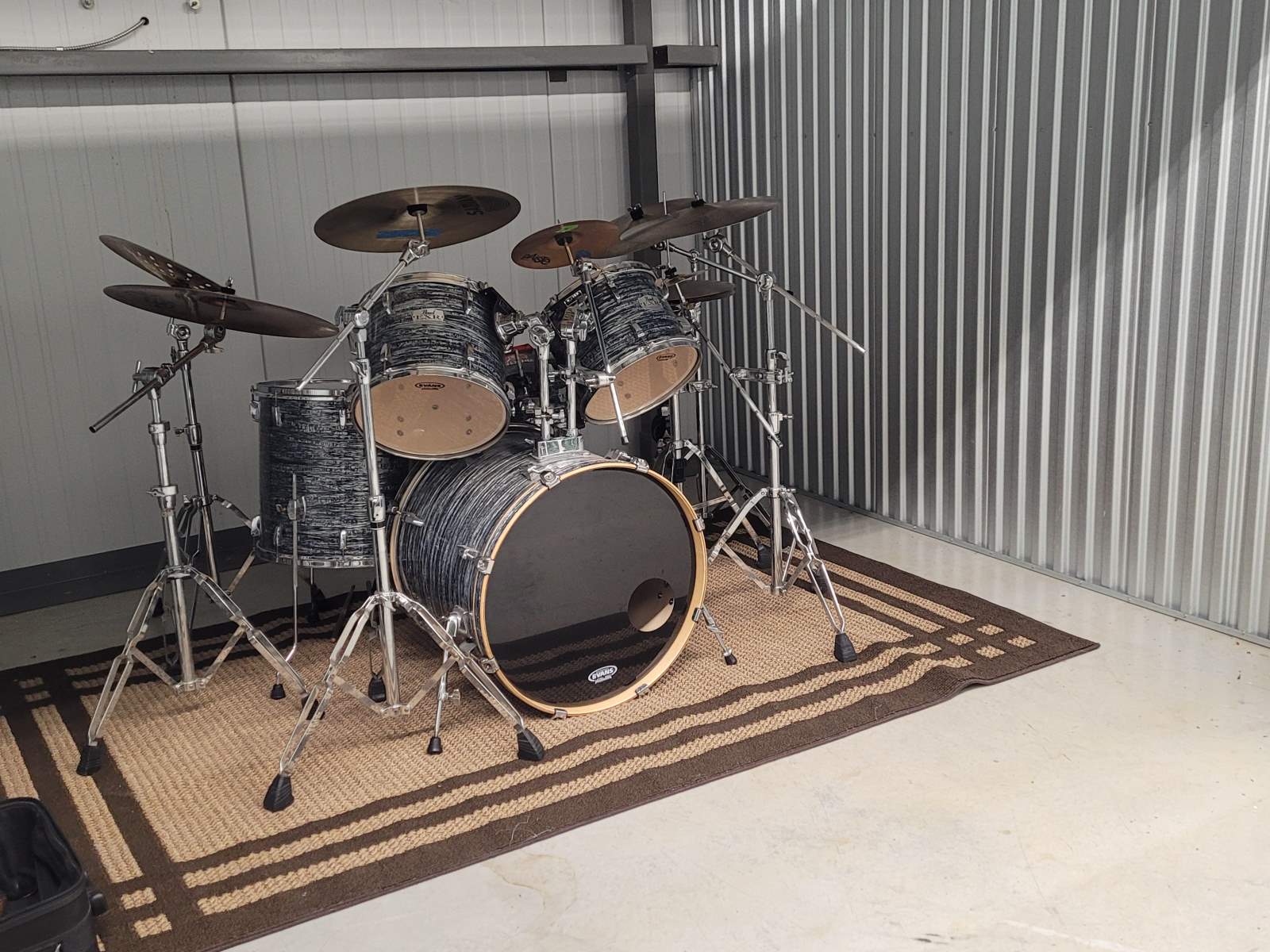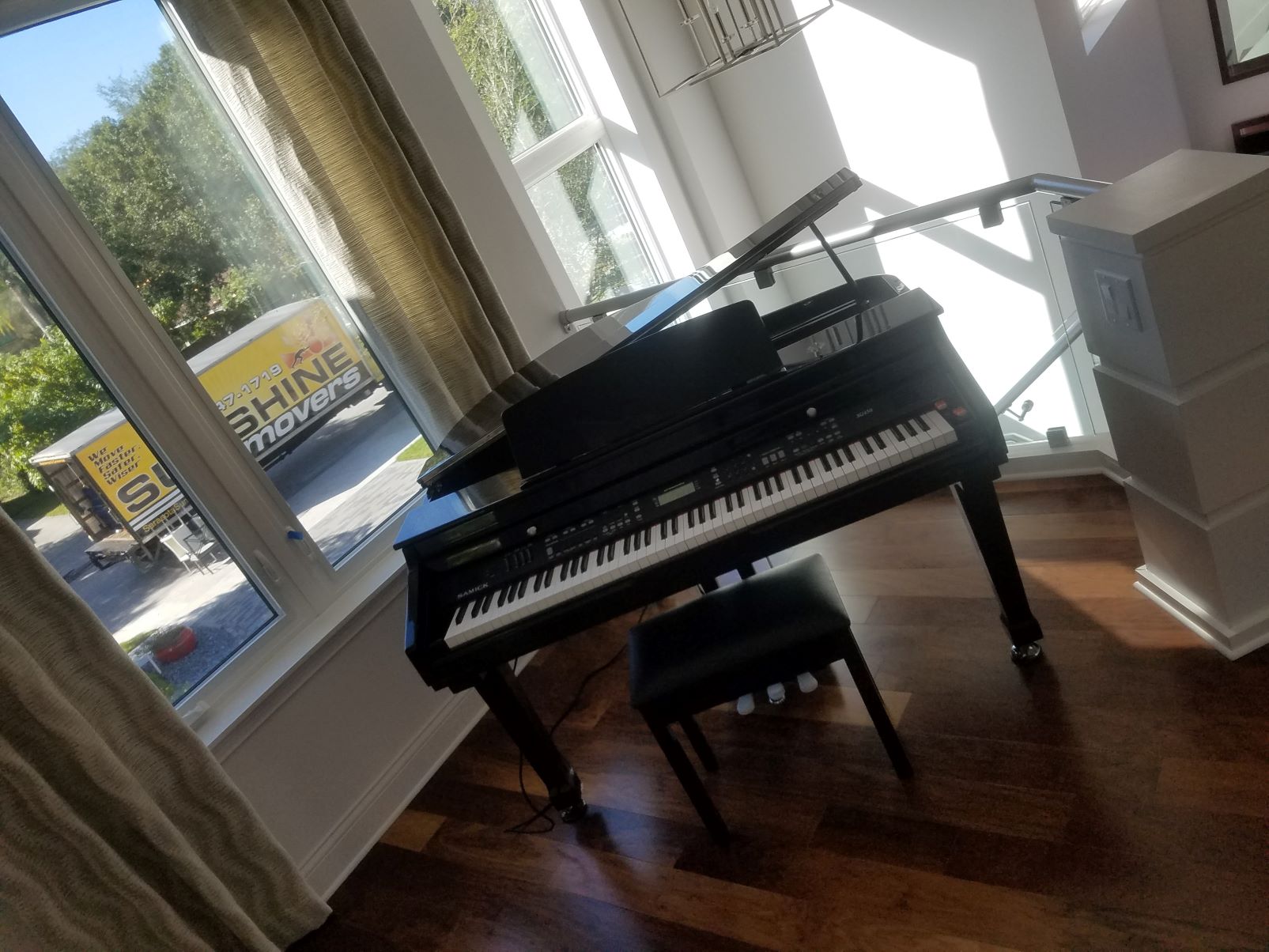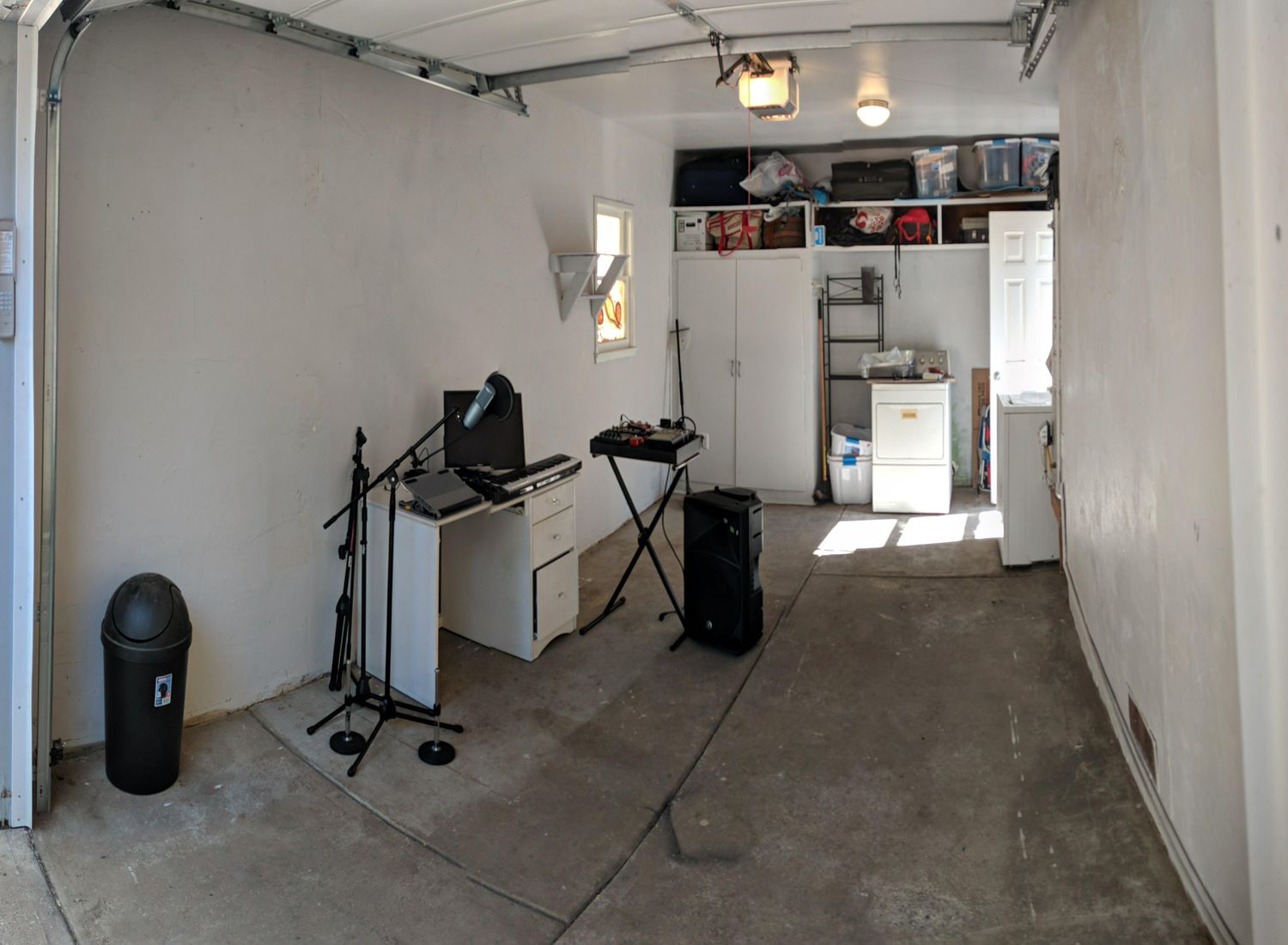Home>Production & Technology>Soundproofing>How Do You Know If An Apartment Has Good Soundproofing?
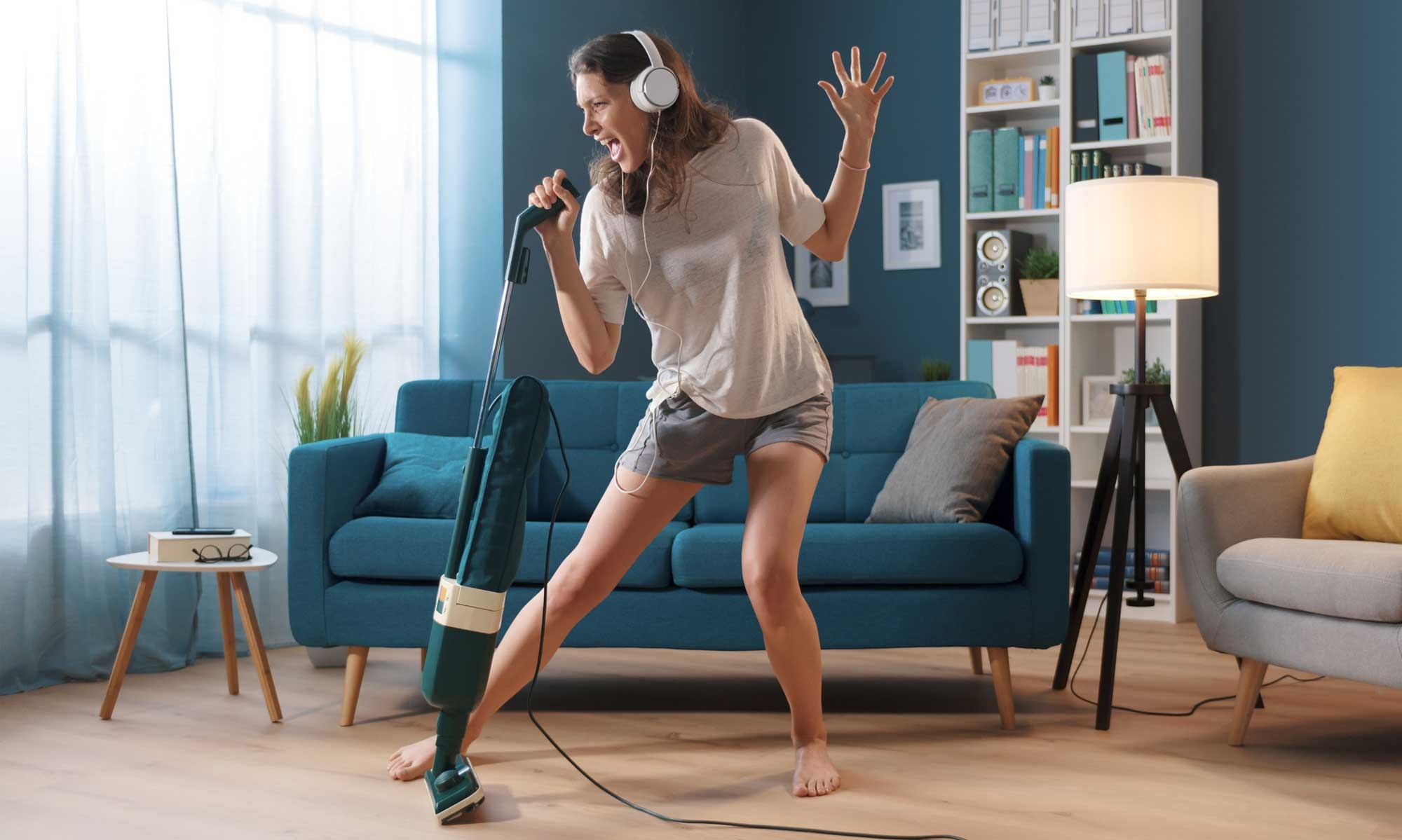

Soundproofing
How Do You Know If An Apartment Has Good Soundproofing?
Published: January 26, 2024
Learn how to determine if an apartment has good soundproofing. Discover key factors to consider and ensure a peaceful living environment.
(Many of the links in this article redirect to a specific reviewed product. Your purchase of these products through affiliate links helps to generate commission for AudioLover.com, at no extra cost. Learn more)
Table of Contents
- Introduction
- Importance of Soundproofing in Apartments
- Factors to Consider When Evaluating Soundproofing in an Apartment
- Assessing the Building Materials and Construction Techniques
- Examining the Windows and Doors for Sound Insulation
- Checking for Soundproofing Measures in Floors and Walls
- Evaluating the Presence of Noise-Reducing Features
- Testing Sound Insulation with a Soundproofing Checklist
- Seeking Professional Advice and Conducting a Sound Test
- Conclusion
Introduction
Living in an apartment can have many advantages – convenience, amenities, and a sense of community. However, one of the common challenges that apartment dwellers face is dealing with noise from neighbors or external sources. From loud music and barking dogs to traffic noise and construction sounds, unwanted noise can disrupt daily life and impact your overall well-being.
This is where soundproofing comes into play. Soundproofing refers to the techniques and materials used to reduce or eliminate the transmission of sound from one space to another. It creates a barrier that prevents noise from entering or escaping a room, providing a quieter and more peaceful living environment.
When searching for an apartment, it is essential to consider the soundproofing quality of the unit. A well-soundproofed apartment can significantly improve your quality of life, allowing you to enjoy tranquility and privacy within the comfort of your home.
In this article, we will explore the factors to consider when evaluating the soundproofing of an apartment. We will discuss the building materials, windows and doors, floors and walls, and noise-reducing features that contribute to effective soundproofing. Additionally, we will provide tips on how to test the sound insulation of an apartment and seek professional advice.
By understanding what to look for and how to assess the soundproofing of an apartment, you can make an informed decision that aligns with your need for a quiet and peaceful living space.
Importance of Soundproofing in Apartments
Soundproofing plays a crucial role in ensuring a comfortable and peaceful living environment in apartments. Noise pollution can have a detrimental effect on our physical and mental well-being, leading to stress, sleep disturbances, and decreased productivity. Here are some key reasons why soundproofing is important in apartments:
- Privacy: Living in close proximity to neighbors means that sounds can easily travel between units. Soundproofing helps maintain privacy by minimizing the transfer of noise, ensuring that conversations, phone calls, and other activities remain confidential.
- Improved Sleep: A restful sleep is vital for our overall health and well-being. Soundproofing can reduce or eliminate noise disturbances, allowing you to sleep peacefully even if there is loud music playing or noisy neighbors nearby.
- Concentration and Productivity: If you work or study from home, a quiet environment is essential for concentration and productivity. Soundproofing helps create a space that is conducive to focus and enables you to perform your tasks without being easily distracted by external noise.
- Reduced Stress: Continuous exposure to unwanted noise can contribute to increased stress levels. Soundproofing minimizes the impact of external noise, creating a calm and serene atmosphere where you can relax and unwind.
- Enhanced Comfort: Whether you’re enjoying a movie or engaging in leisure activities, a quiet environment enhances your overall comfort and enjoyment. Soundproofing ensures that you can fully immerse yourself in your preferred activities without disturbances from the surrounding noise.
By investing in soundproofing measures, apartment residents can experience a significant improvement in their quality of life. The ability to control and minimize the impact of noise allows for a more peaceful and enjoyable living space, promoting well-being and harmony.
Factors to Consider When Evaluating Soundproofing in an Apartment
When evaluating the soundproofing quality of an apartment, it’s important to consider various factors that contribute to effective noise reduction. Here are some key factors to keep in mind:
- Building Materials and Construction: The choice of building materials and construction techniques used in the apartment can significantly impact its soundproofing capabilities. Look for apartments constructed with materials that have good sound insulation properties, such as double-layered drywall or acoustic insulation in the walls and ceilings.
- Windows and Doors: Windows and doors are potential weak points for sound leakage. Check if the apartment has double-pane windows with acoustic seals to minimize external noise. Good-quality doors with weatherstripping can also help create a sound barrier between rooms or the outside environment.
- Floors and Walls: Thick and properly insulated floors and walls can help reduce the transmission of sound. Insulation materials, such as acoustic underlayment or carpet padding, can be effective in absorbing impact noise and minimizing sound transfer between floors. Additionally, solid walls and partitions without gaps or cracks provide better sound insulation.
- Noise-Reducing Features: Many modern apartments incorporate noise-reducing features into their design. Look for apartments with sound-dampening features like noise reduction windows, soundproof wall panels, or acoustic baffles in the ceilings. These features can greatly enhance the soundproofing capabilities of the space.
- Shared Walls: If you are considering an apartment with shared walls, inquire about the soundproofing measures taken between units. Look for apartments with double walls, insulation, or soundboard installations to minimize sound transfer from neighboring units.
It’s important to note that soundproofing can vary from one apartment to another, even within the same building. Factors such as the age of the building, construction quality, and any renovations or updates made to the unit can also influence its soundproofing effectiveness.
By considering these factors and thoroughly inspecting the apartment, you can gain a better understanding of its soundproofing capabilities and make an informed decision that aligns with your need for a quiet and peaceful living environment.
Assessing the Building Materials and Construction Techniques
When evaluating the soundproofing quality of an apartment, it’s essential to assess the building materials and construction techniques used in its construction. The choice of materials and construction methods can greatly impact the level of sound insulation the apartment offers. Here are some key points to consider:
- Walls: Inspect the walls of the apartment to determine their thickness and construction. Solid and thick walls tend to provide better sound insulation compared to thinner walls. Look for apartments with double-layered drywall or walls made of sound-blocking materials like concrete or mass-loaded vinyl. These materials can help reduce the transmission of sound from neighboring units or external sources.
- Ceiling and Floors: Consider the materials used in the ceiling and floors of the apartment. Apartments with concrete ceilings and floors tend to have better sound insulation properties compared to those with wooden or lightweight constructions. Additionally, ask about the presence of insulation materials under the flooring, such as acoustic underlayment or carpet padding, as they can help absorb impact noise and reduce sound transfer between floors.
- Doors and Windows: Pay attention to the quality and construction of the doors and windows in the apartment. Solid-core doors with proper weatherstripping can help block out noise from outside or neighboring units. Look for windows with double-pane glass and acoustic seals as they provide better sound insulation. Additionally, check if the windows are properly installed to minimize gaps that can allow sound to leak into the apartment.
- Construction Techniques: Inquire about the construction techniques used in the apartment building. Buildings with staggered stud walls or double walls, where two layers of drywall are separated by an air gap, tend to offer improved soundproofing compared to buildings with single stud walls. Additionally, buildings designed with soundproofing measures in mind, such as enhanced insulation between units or sound dampening materials within the walls, can provide superior noise reduction.
Assessing the building materials and construction techniques of an apartment can give you valuable insights into its soundproofing capabilities. Keep in mind that newer buildings or those specifically designed for soundproofing purposes may have better insulation compared to older buildings. Therefore, thorough examination of the apartment’s construction will help you make an informed decision and choose an apartment that meets your noise reduction requirements.
Examining the Windows and Doors for Sound Insulation
Windows and doors are common entry points for external noise to infiltrate an apartment. When evaluating the soundproofing quality of an apartment, it is crucial to carefully examine the windows and doors for their sound insulation capabilities. Here are some aspects to consider:
- Window Construction: Inspect the windows to determine their construction and insulation features. Look for double-pane or triple-pane windows, as they provide better sound insulation compared to single-pane windows. The air gaps between the panes act as a barrier to sound transmission. Additionally, windows with low-emissivity (low-e) or laminated glass can further enhance sound reduction.
- Acoustic Seals: Check if the windows have proper acoustic seals. These seals help to reduce sound leakage by sealing gaps between the frame and the window. Look for rubber or silicone seals that provide a tight seal when the window is closed. The presence of these seals can significantly improve the sound insulation performance of the windows.
- Window Frame Material: Consider the material of the window frame. Materials like vinyl or fiberglass tend to provide better sound insulation compared to aluminum frames, which are less effective in blocking out noise. Inspect the frame for any signs of wear or damage that could compromise its soundproofing capabilities.
- Door Quality: Assess the quality of the doors in the apartment. Solid doors, particularly those made of materials like solid wood or metal, tend to offer better sound insulation compared to hollow-core doors. Feel for any gaps or drafts around the door frame that could allow noise to seep through. Additionally, consider the installation of a door sweep at the bottom of the door to further enhance soundproofing.
- Weatherstripping: Examine the door and window frames for weatherstripping. Weatherstripping helps seal the gaps around doors and windows, preventing sound from entering or escaping the apartment. Look for weatherstripping made of materials like rubber or silicone, as these are effective in blocking sound transmission.
By examining the windows and doors of an apartment for their sound insulation properties, you can determine how well they can block out external noise. The presence of double-pane windows, proper seals, solid doors, and effective weatherstripping indicate a higher level of soundproofing. Considering these factors will help you choose an apartment that provides a quieter living environment and minimizes noise disturbances.
Checking for Soundproofing Measures in Floors and Walls
When evaluating the soundproofing quality of an apartment, it’s important to check for soundproofing measures in the floors and walls. These areas play a significant role in reducing the transmission of noise between units. Here are some factors to consider:
- Flooring: Assess the type of flooring in the apartment. Carpets, especially those with thick padding underneath, can help absorb impact noise and reduce sound transmission between floors. Hardwood or laminate flooring, on the other hand, may require additional soundproofing measures like acoustic underlayment to minimize noise transfer. Look for apartments that have taken steps to reduce impact noise, such as incorporating sound-dampening materials beneath the flooring.
- Wall Insulation: Inspect the walls for signs of insulation. Good soundproofing should include insulation in the walls to minimize sound transmission between adjacent units. Look for apartments that have installed acoustic insulation materials or double walls with proper insulation in between. These features can significantly enhance soundproofing and reduce noise disturbances.
- Gaps and Cracks: Check for any gaps, cracks, or openings in the floors and walls. Small gaps or cracks can allow sound to leak through, diminishing the effectiveness of soundproofing measures. Look for signs of poor construction or lack of proper sealing. If you notice any gaps, consider asking the landlord or property manager about their plans to rectify these issues.
- Shared Wall Soundproofing: If the apartment shares a wall with another unit, inquire about the soundproofing measures taken. Look for apartments with features like double-layered drywall, insulation, or sound-absorbing materials between shared walls. These measures help minimize sound transmission and create a separation between units.
- Air Vents and Outlets: Pay attention to the air vents and electrical outlets on the walls. Ensure that they are properly sealed and do not create potential pathways for sound to travel between units. Look for apartments where these features have been properly soundproofed or insulated to minimize noise transfer.
By checking for soundproofing measures in the floors and walls of an apartment, you can gain insights into the level of noise reduction you can expect. Apartments with quality insulation, well-maintained flooring, and effective sealing of gaps and cracks provide better soundproofing and contribute to a more peaceful living environment.
Evaluating the Presence of Noise-Reducing Features
When assessing the soundproofing quality of an apartment, it’s important to consider the presence of noise-reducing features. These features are designed to minimize noise disturbances and enhance the overall sound insulation of the space. Here are some key features to evaluate:
- Noise Reduction Windows: Look for apartments that have noise reduction windows installed. These windows are specially designed with multiple layers of glass and sound-absorbing materials to block out external noise. Noise reduction windows can significantly reduce the impact of street noise, traffic, and other loud sounds.
- Acoustic Wall Panels: Inspect the walls for the presence of acoustic wall panels. These panels are designed to absorb sound and improve the acoustics within a room. Apartments with acoustic wall panels can help reduce echoes and reverberations, creating a quieter and more peaceful living space.
- Soundproofing Insulation: Inquire about the installation of soundproofing insulation in the walls and ceilings of the apartment. Soundproofing insulation, such as acoustic mineral wool or cellulose insulation, can significantly reduce noise transmission. It absorbs sound vibrations and prevents them from easily transferring from one area to another.
- Solid Core Doors: Check if the apartment has solid core doors. Solid core doors are denser and heavier than hollow core doors, providing better sound insulation. They can help block out noise and minimize sound transmission between rooms or from the hallways.
- Acoustic Ceiling Tiles: Look for apartments with acoustic ceiling tiles. These tiles are designed to absorb sound and reduce the transmission of noise between floors. Apartments with acoustic ceiling tiles can help minimize impact noise from above, such as footsteps or dropped objects.
- Sealing of Gaps and Cracks: Assess the overall condition of the apartment for gaps and cracks that may allow sound to leak through. Look for apartments where gaps and cracks around windows, doors, and other openings have been properly sealed. Effective sealing helps prevent noise from entering or escaping through these gaps.
Evaluating the presence of noise-reducing features in an apartment can provide valuable insights into its soundproofing capabilities. Apartments equipped with noise reduction windows, acoustic wall panels, soundproofing insulation, and other noise-reducing features can offer superior noise reduction and create a more serene living environment.
Testing Sound Insulation with a Soundproofing Checklist
When evaluating the soundproofing quality of an apartment, it can be helpful to conduct a sound insulation test using a soundproofing checklist. This checklist allows you to systematically assess and measure the effectiveness of the apartment’s soundproofing measures. Here are some steps you can follow:
- Identify Potential Noise Sources: Make a list of noise sources that may exist in and around the apartment. This can include neighboring units, traffic outside, or other sources of potential noise.
- Choose a Test Location: Select a room or area within the apartment where you can conduct the sound insulation test. Ideally, choose a room that is closest to any potential noise sources.
- Measure Ambient Noise Level: Use a sound level meter or a sound meter app on your smartphone to measure the ambient noise level in the test location. This will serve as a baseline for comparing the sound insulation effectiveness later.
- Test Sound Transmission: Play a standardized sound source, such as a white noise machine or a loudspeaker, in the room where you’re conducting the test. Move to different areas of the apartment, including neighboring rooms and areas prone to noise leakage, and assess the sound transmission. Pay attention to how much sound can be heard and if it is significantly reduced or muffled compared to the test location.
- Check for Vibrations: Pay attention to any vibrations that can be felt in the floors, walls, or furniture. Vibrations can indicate poor soundproofing, as sound energy is being transferred through these surfaces. Note any areas where vibrations are noticeable.
- Assess Impact Noise: Test for impact noise by dropping or tapping on the floors or walls. Observe if the impact noise is easily transmitted and if it creates a significant disturbance in neighboring areas.
- Document Findings: Keep a record of your observations and measurements from the sound insulation test. Take note of any areas where the sound insulation appears to be lacking or any unexpected noise leakage points.
By using a soundproofing checklist to test the sound insulation of an apartment, you can gather objective data and evaluate the effectiveness of its soundproofing measures. This test can help you identify any potential issues or weaknesses in sound insulation, allowing you to make an informed decision about the apartment’s suitability for your needs.
Seeking Professional Advice and Conducting a Sound Test
When evaluating the soundproofing quality of an apartment, seeking professional advice and conducting a sound test can provide valuable insights and ensure a comprehensive assessment. Here are some steps you can take:
- Consult an Acoustics Expert: Consider hiring an acoustics expert or a soundproofing professional to assess the soundproofing capabilities of the apartment. They have the expertise and specialized equipment to conduct thorough tests and provide professional recommendations based on the specific characteristics of the space.
- Request Sound Transmission Class (STC) Ratings: Ask the property owner, landlord, or real estate agent about the Sound Transmission Class (STC) ratings of the apartment. The STC rating measures the effectiveness of a material or construction in reducing airborne sound transmission. Higher STC ratings indicate better soundproofing capabilities.
- Conduct a Sound Test: If permitted, conduct your own sound test in the apartment. Invite a friend or family member to make noise in different areas of the apartment, such as walking, talking, or playing music. Observe how well the sound is contained within each room and if any excessive noise is transferred to neighboring areas.
- Pay Attention to Common Areas: Assess the soundproofing quality of common areas in the apartment building, such as hallways, staircases, or shared facilities. These areas can be sources of noise that may affect your overall living experience. Evaluate if the noise levels are adequately controlled and if there are any potential issues that could impact your comfort.
- Consider Feedback from Current Residents: Connect with current residents in the apartment building and inquire about their experience with soundproofing. Their firsthand insights can provide valuable information about any noise-related challenges they may have faced and the effectiveness of the apartment’s soundproofing measures.
- Visit at Different Times: If possible, visit the apartment at different times of the day to assess the noise levels. This can help you identify any patterns of excessive noise from external sources, such as heavy traffic during rush hour or loud music from nearby establishments.
By seeking professional advice and conducting a sound test, you can obtain a more comprehensive understanding of the apartment’s soundproofing quality. Professional expertise and personal observations can shed light on any potential soundproofing issues and allow you to make an informed decision about the apartment’s suitability for your needs.
Conclusion
When searching for an apartment, evaluating the soundproofing quality is crucial for creating a peaceful and comfortable living environment. By considering various factors such as building materials, windows and doors, floors and walls, and the presence of noise-reducing features, you can make an informed decision that aligns with your noise reduction requirements.
Assessing the building materials and construction techniques used in the apartment can give you valuable insights into its soundproofing capabilities. Solid and well-insulated walls, sound-dampening windows, and proper construction techniques can significantly improve sound insulation.
Checking for soundproofing measures in the floors and walls of the apartment is equally important. Insulation materials, such as acoustic underlayment or carpet padding, and properly sealed gaps and cracks can help minimize sound transmission and enhance overall soundproofing.
Evaluating the presence of noise-reducing features, such as noise reduction windows, acoustic wall panels, and soundproofing insulation, can provide additional assurance of a quieter living environment.
Conducting a sound insulation test with a soundproofing checklist can help you objectively measure the effectiveness of the apartment’s soundproofing measures. By measuring ambient noise levels, testing sound transmission, assessing vibration, and monitoring impact noise, you can gather valuable data to inform your decision-making process.
Seeking professional advice from acoustics experts and conducting your own sound test can provide further insights and ensure a comprehensive assessment. Their expertise and feedback from current residents can help you make an informed decision based on real-world experiences.
In conclusion, taking the time to evaluate the soundproofing quality of an apartment can significantly improve your quality of life. By choosing an apartment with effective soundproofing measures in place, you can create a peaceful and comfortable living space that minimizes noise disturbances and promotes your overall well-being.

